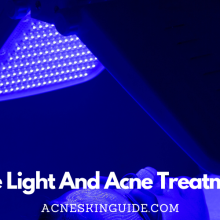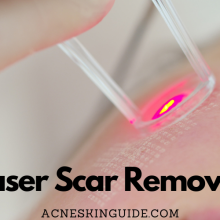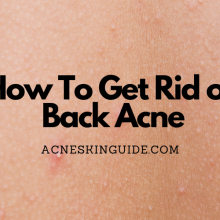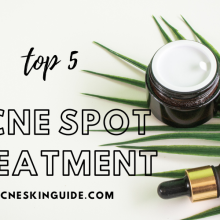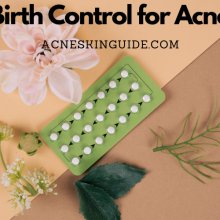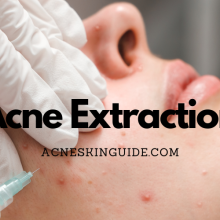Accutane (Isotretinoin) – The Pros and Cons | AcneSkinGuide
Accutane (isotretinoin) is a powerful oral retinoid renowned for clearing even the most stubborn cases of severe, cystic acne when other treatments fail. While highly effective, it also carries potentially severe side effects like extreme dryness, hair loss, depression, birth defects risks, and more. The intense 5-7 month treatment process involves frequent lab monitoring, starting low and ramping up dosing, and an initial acne “purge.” Patients must stay hydrated, use heavy moisturizers, and protect their sensitive skin. Without insurance, costs can reach thousands.
Accutane requires dedication, as users must follow all directions, use birth control if applicable, and endure temporary dryness effects. For those with recalcitrant nodulocystic acne, the ability to finally clear their severe acne is often worth weathering the downsides under a dermatologist’s supervision. However, weighing Accutane’s pros and cons carefully is crucial given the commitment and potential risks involved.

Accutane (Isotretinoin) – A Comprehensive Guide
For those struggling with severe, cystic acne that hasn’t responded to other treatments, Accutane (isotretinoin) can seem like a miracle drug. This powerful oral retinoid has an impressive track record of clearing up even the most stubborn cases of acne. However, Accutane also comes with a lengthy list of potential side effects, some quite severe, that have made it one of the most controversial acne medications on the market.
The Pros: Highly Effective for Severe Acne
There’s no denying that Accutane gets results for patients with recalcitrant nodular acne. Dermatologists consider it the gold standard treatment when other medications like antibiotics, retinoids, and Spironolactone have failed. Accutane works by reducing oil production in the skin, slowing skin cell shedding, and reducing acne-causing bacteria.
Many patients share amazing “before and after” transformation photos showcasing how well Accutane cleared their skin after years of struggling with acne. Additionally, Accutane helps prevent future acne scarring by getting active lesions under control. Its effects are long-lasting, with a high percentage of users remaining acne-free for years after just a single course.
The Cons: Potentially Severe Side Effects
While Accutane’s efficacy is remarkable, so too are the downsides that many patients experience. Accutane’s side effects are widespread, impacting many areas of the body beyond the skin. These can include:
- Severely dry skin, lips, eyes, nose and mouth
- Hair thinning or temporary hair loss
- Increased sun sensitivity and risk of sunburns
- Muscle aches and back pain
- Headaches and fatigue
- Gastrointestinal issues like nausea and rectal bleeding
Most concerning are Accutane’s potential impacts on mental health, pregnancy, and birth defects. Many studies link isotretinoin to increased depression, anxiety, and suicidal thoughts in some patients. For women of childbearing age, there are serious risks of birth defects if pregnancy occurs while taking Accutane, which is why two forms of birth control are required during and after treatment.
To manage these risks, patients must undergo frequent lab monitoring with blood tests and pregnancy tests throughout their Accutane course, typically 5-7 months. They also enroll in the iPLEDGE program to ensure proper safety precautions.
An Intense Treatment Process
The treatment journey with Accutane can be intense, overwhelming, and quite drying for the body. Most patients start at a low dose that gradually increases to the maximum based on their weight. An initial acne “purge” is common in the first 1-2 months as the medication pushes out excess oil and bacteria, causing breakouts to briefly worsen before improving.
Dryness becomes extreme for many patients, leading to cracked lips, nosebleeds, irritated eyes, and painfully peeling skin. Staying hydrated and using intensely moisturizing products becomes essential. Sun protection is also key, as Accutane increases the skin’s sensitivity to UV rays.
Exploring Costs and Alternatives
Without health insurance coverage, an Accutane treatment course can cost thousands of dollars out-of-pocket in the United States. Some look into “low-dose” Accutane regimens to reduce costs and potential side effects. Others combine it with another acne medication like a topical retinoid or antibiotic.
Of course, plenty of Accutane alternatives exist as well, such as oral contraceptives like Yaz for women, Spironolactone, topical retinoids, benzoyl peroxide, oral antibiotics, and more. These may be options for those with more moderate acne, or those who cannot tolerate or do not wish to risk Accutane’s side effects.
Making the Decision
When weighing the benefits against the risks, Accutane is typically only recommended for patients with very severe nodulocystic acne that hasn’t improved with other treatments. An experienced dermatologist should thoroughly review a patient’s acne history, discuss Accutane’s risks and responsibilities, and determine if they are a good candidate.
Accutane requires dedication, as patients must closely follow directions, attend all appointments, cease certain medications like Vitamin A, and accept the temporary dryness. They must also be willing and able to use two reliable forms of birth control if there is any possibility of becoming pregnant.
For those who proceed, having an Accutane support system and using tips from past patients can help immensely in managing the difficult dryness and other temporary side effects. With proper adherence, determination, and medical supervision, many find Accutane’s ability to clear their severe acne is worth enduring its downsides.
While Accutane has been transformative for countless acne patients over the past few decades, it’s crucial that every individual carefully weighs the pros and cons with their dermatologist. Its efficacy is remarkable, but its risks are also considerable – requiring commitment and vigilance throughout the entire treatment process.
FAQs and Answers
How long does it take to see results from Accutane?
It typically takes 2-3 months to start seeing noticeable results from Accutane (isotretinoin), though the initial few weeks can involve an acne “purge” where the skin briefly gets worse before improving. Most patients experience their maximum clearance around the 4-5 month mark of their treatment course, which usually lasts around 5-7 months total. However, individual results can vary based on dosage, acne severity, and other factors. Patience is required, as Accutane works gradually over several months to allow the skin to reset its oil production and clear out acne from the inside-out.
Will Accutane cure my acne permanently?
No, Accutane (isotretinoin) is not considered a permanent cure for acne, though it does provide long-lasting remission for most patients. Here are some key points about its lasting effects:
- Accutane gets to the root causes of acne by shrinking oil glands and reducing oil production in the skin. This provides relief from acne for an extended period after completing the course.
- Studies show that around 80% of patients remain acne-free 5 years after a single course of Accutane.
- However, some patients do experience a resurgence of acne months or years later as their oil glands start producing more oil again over time.
- A smaller percentage of patients, estimated around 20-30%, require a second or even third course of Accutane later on to regain clearance.
- Factors like genetics, hormones, stress, and lifestyle can all influence whether acne comes back for an individual after Accutane or not.
So in summary, while not a true permanent cure, Accutane does provide years of acne clearance for the majority of patients when used as directed. But it’s not a guarantee of never seeing acne again for life. Consistent skin care and monitoring is still required long-term.
Are the side effects of Accutane permanent?
No, the side effects experienced while taking Accutane (isotretinoin) are generally not permanent and will resolve after stopping the medication. Here are some key points about the temporary nature of Accutane’s side effects:
- Extremely dry skin, chapped lips, dry eyes, nosebleeds, and increased sun sensitivity are very common during an Accutane course, but these dryness-related side effects typically go away within 1-2 months after completion once the drug has cleared the body.
- Other side effects like muscle aches, joint pain, headaches, and fatigue also dissipate relatively quickly, usually within 4-8 weeks of stopping Accutane.
- Any hair thinning or temporary hair loss induced by Accutane is reversible, with most patients seeing full regrowth within 6 months after finishing their course.
- Rare but serious side effects like vision issues or inflammatory bowel disease symptoms are still expected to resolve after discontinuation of the medication.
- The only potentially permanent effect is scarring from severe dryness and skin peeling, if proper intense moisturizing and skincare precautions were not taken during the Accutane course.
So in summary, while the side effects can be quite difficult during the 5-7 month treatment, Accutane’s impacts on the body are temporary. Most side effects dissipate within 1-2 months of stopping as the medication fully clears one’s system and oil production normalizes again.
Can Accutane be taken during pregnancy?
No, Accutane (isotretinoin) absolutely cannot be taken during pregnancy due to the extremely high risk of causing severe birth defects. It is strictly contraindicated in pregnant women.
Some key points about Accutane and pregnancy:
- Accutane is known to cause a range of serious birth defects affecting the brain, heart, ears, eyes and face if taken during pregnancy.
- The risk of birth defects is estimated to be 25-35% when Accutane is taken while pregnant.
- Because of these risks, women must use two reliable forms of birth control while on Accutane and for one month after stopping treatment.
- Before starting Accutane, women must have two negative pregnancy tests and agree to monthly pregnancy testing during the course.
- If a woman does become pregnant on Accutane, the recommendation is to terminate the pregnancy to avoid birth defects.
- Both male and female patients must be registered in the iPLEDGE program to receive counseling on these serious pregnancy risks before filling their Accutane prescription.
There are absolutely no circumstances where it is considered safe for a pregnant woman to take this powerful medication. The ability for Accutane to cause fetal abnormalities is one of the biggest reasons why it carries so many safety controls and requirements for patients of childbearing age.
What are the best ways to manage Accutane side effects?
Here are some of the best ways to manage the side effects while taking Accutane (isotretinoin):
- Use extremely hydrating moisturizers: Opt for thick, fragrance-free creams and ointments like Cetaphil, CeraVe, Vanicream to combat severe dryness and peeling skin.
- Stay extremely well-hydrated: Drink plenty of water throughout the day to help counter Accutane’s drying effects from the inside out.
- Use intensive lip ointments/masks: Keep lips coated with products like Aquaphor, Bag Balm, or overnight lip masks to prevent cracking and bleeding.
- Take cool showers: Hot water further dries out skin, so stick to lukewarm showers and baths.
- Avoid exfoliants and harsh cleansers: Don’t use any scrubs or drying soaps that can damage the moisture barrier.
- Protect from the sun: Use high SPF sunscreen daily as Accutane increases photosensitivity.
- Take fish oil or flaxseed oil supplements: These can help counter the dryness from the inside.
- Use saline nasal sprays: Keep nasal passages hydrated to prevent nosebleeds.
- Apply eye drops: Accutane can cause very dry, irritated eyes.
- Adjust dosage if needed: Your dermatologist may temporarily lower your dosage if side effects become intolerable.
Being proactive about intense moisturizing from head-to-toe is crucial for managing Accutane’s drying effects on skin, hair, lips and mucous membranes. Don’t hesitate to ask your derm for product recommendations.

